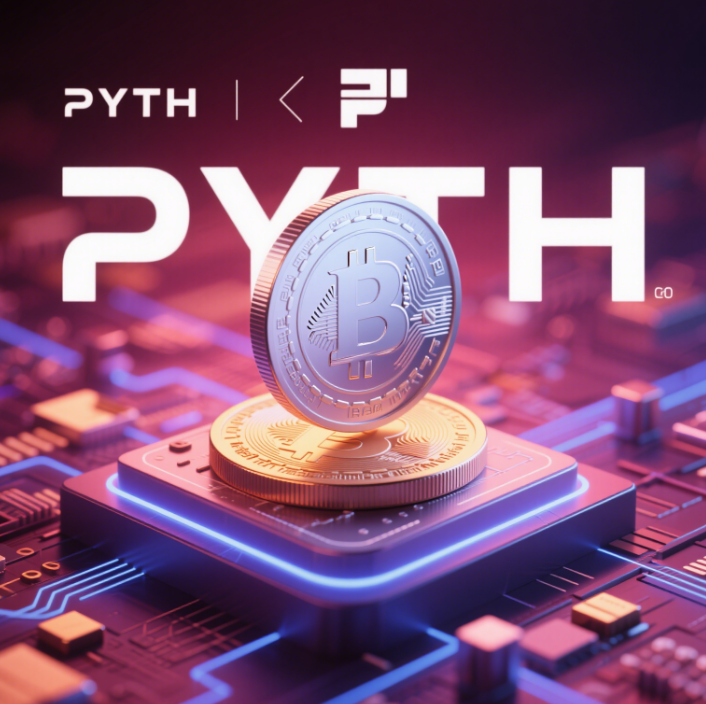The cryptocurrency market has seen exponential growth over the past decade, and with it, numerous innovations have emerged. One such innovation is the PYTH token, a key player in the realm of decentralized finance (DeFi) and the broader crypto ecosystem. In this article, we’ll dive deep into what PYTH is, how it works, and why it’s gaining attention in the crypto space.
Introduction to PYTH Token
PYTH is the native token of the Pyth Network, a decentralized oracle network that provides high-fidelity, real-time market data to blockchain applications. While blockchain networks like Ethereum and Solana rely on smart contracts to execute transactions, they lack the ability to retrieve off-chain data directly. This is where oracles come in, acting as bridges between blockchain networks and the outside world.
The Pyth Network focuses on bringing accurate and timely price feeds for assets such as cryptocurrencies, commodities, equities, and forex to decentralized applications (dApps). The PYTH token is integral to the network, facilitating governance, staking, and rewarding participants for their contributions.
The Role of PYTH Token in the Ecosystem
Decentralized Data Feeds:
The Pyth Network is powered by a collection of data providers, such as exchanges and institutional traders, who submit real-time data to the network. These price feeds are critical for DeFi applications, especially in areas like derivatives trading, lending, and synthetic assets. The PYTH token serves as a governance mechanism, allowing token holders to vote on crucial decisions related to the network’s development and data curation.
Staking and Security:
Staking PYTH tokens is a key aspect of securing the network. Validators on the Pyth Network need to stake PYTH tokens as collateral to ensure that they provide accurate and reliable data. If a validator submits incorrect or malicious data, they risk losing their staked PYTH tokens, which incentivizes honest behavior and adds a layer of security to the platform.
Governance:
Token holders have a say in the future of the Pyth Network through governance mechanisms. Whether it’s determining the types of assets for which the network provides data or making decisions about protocol upgrades, governance plays a crucial role in ensuring that the Pyth Network remains aligned with the needs of its community and users.
The Advantages of PYTH Token and Pyth Network

Real-Time, High-Quality Data:
One of the biggest challenges in the crypto space is obtaining accurate and timely price data. Traditional oracles often suffer from delays and inaccuracies due to centralized data sources. The Pyth Network, on the other hand, aggregates data from multiple high-quality sources, ensuring that the feeds are reliable and up-to-date, even during volatile market conditions.
DeFi Integration:
Decentralized finance (DeFi) platforms depend heavily on accurate data for features like lending, margin trading, and decentralized exchanges (DEXs). Pyth’s role in providing real-time market data has made it an essential tool for many DeFi platforms. The PYTH token’s involvement in governance and staking ensures that the network remains decentralized and that users have a stake in its future.
Cross-Chain Compatibility:
The Pyth Network is designed to be cross-chain compatible, meaning that it can integrate with multiple blockchain networks. This opens up opportunities for a wide range of applications across different blockchain ecosystems, including Solana, Ethereum, and other smart contract platforms. PYTH tokens play a vital role in ensuring that data feeds are consistent and accessible across these networks.
The Future of PYTH Token
The future of PYTH looks promising, especially with the growing demand for decentralized, high-fidelity data feeds in the rapidly evolving crypto and DeFi markets. As more blockchain networks and dApps adopt the Pyth Network, the demand for PYTH tokens is likely to rise. Additionally, with ongoing developments in the crypto space, such as the rise of decentralized exchanges (DEXs) and synthetic assets, the need for reliable data sources like Pyth will only increase.
One of the most exciting aspects of the PYTH token is its role in decentralizing data, which could have far-reaching implications beyond crypto markets. For example, the ability to use decentralized oracles for real-world data (such as weather reports, supply chain information, and more) could pave the way for new applications in industries outside of finance.
Conclusion: HIBT and the Growth of PYTH
As the world of decentralized finance continues to expand, projects like Pyth Network and its PYTH token are proving to be vital players in the ecosystem. Whether it’s through governance, staking, or providing high-quality data, PYTH is helping shape the future of blockchain technology.
For those keeping an eye on emerging technologies and trends in the blockchain space, PYTH and HIBT remain key areas of focus. With the increasing adoption of decentralized finance and blockchain technology, PYTH is poised for continued growth and relevance in the crypto landscape.
Stay updated with HIBT for the latest insights and developments in the crypto and blockchain world.